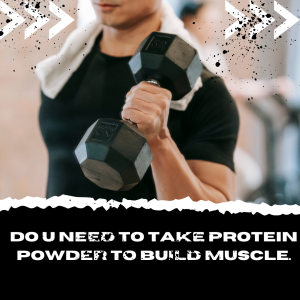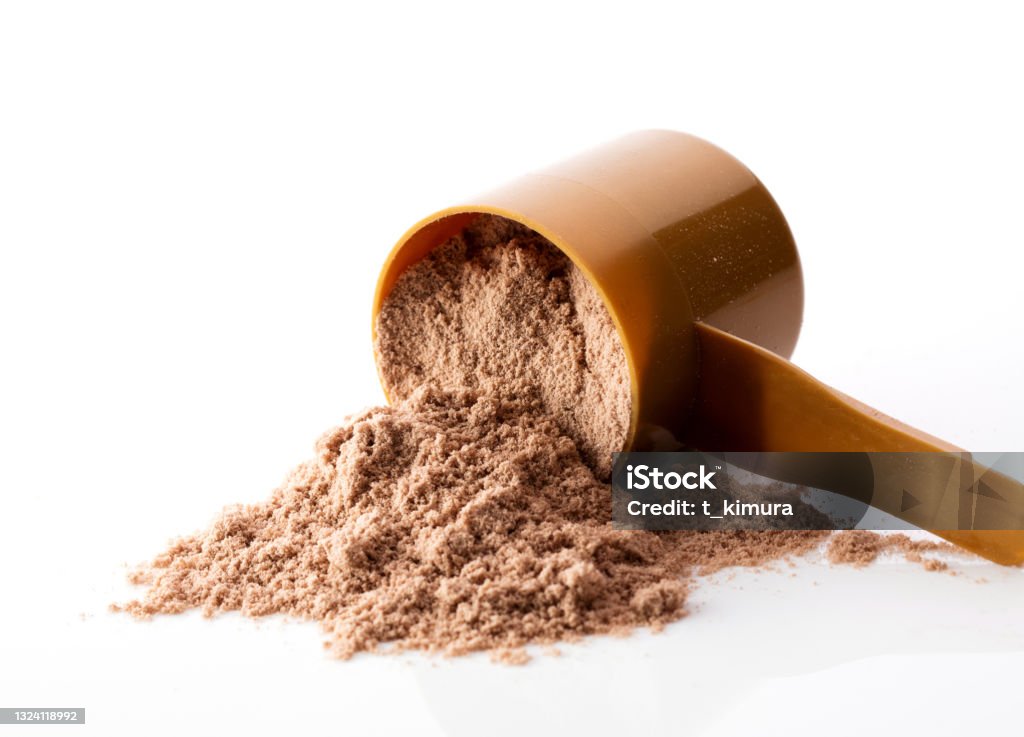Is protein powder dangerous for you

Introduction
Everyone interested in fitness, muscle growth, fat loss, or any physical activity often wonders about the role of protein powder. The common questions revolve around whether protein powder is essential for muscle recovery, building muscle, and achieving one’s ideal physique. Today, I’ll address these concerns and clarify any misconceptions about protein powder. We’ll explore its importance, potential benefits, and any possible risks associated with its use, helping you make an informed decision about incorporating it into your routine.

Taboo around protein powder
A common misconception in the fitness industry is that protein powder is harmful to your health. In India, there’s a term “Dabba” used to describe protein powder and those who use it, often referring to their physiques as “Dabba wali body.” These are misconceptions that I aim to address today.
Before diving into the specifics of protein powder, it’s crucial to understand the role of protein itself. Protein is essential for muscle building, rapid recovery, and overall physical performance. It plays a vital role in any activity requiring strength or power. Understanding the importance of protein will help clarify why protein powder can be a beneficial supplement in your fitness journey.

Why protein is essential
Protein is fundamentally important for your body as it is the building block of all your tissues. Every cell in your body requires protein, whether it’s for muscle growth, cellular repair, or regeneration. Protein is the primary and essential component of your muscles, meaning that for muscle building and recovery, protein is crucial.
Whether you obtain protein from natural sources like rice, chapati, soybeans, or from protein powder, it is essential for supporting your body’s repair and growth processes. If you’re engaging in intense workouts and breaking down muscle fibers, your body will need an adequate protein supply to recover and rebuild effectively.

Fuel for muscle growth
Let’s delve into the process of muscle building. When you work out, you create microtears in your muscle fibers. These tiny tears are a natural part of the muscle-building process. To repair and rebuild these tears, your body requires a source of fuel to support recovery and growth.
The key to this recovery process is protein. Protein provides the necessary macronutrients that your muscles need to repair, grow stronger, and increase in size. Without adequate protein, the microtears cannot effectively heal, which is crucial for building muscle mass and enhancing strength.

Your body doesn’t differentiate between the sources of protein—whether it comes from natural foods or a protein powder supplement. Both provide the same essential macronutrient needed for muscle repair and growth. Protein powder is simply a more convenient and easily digestible form of protein compared to whole foods.
The key point is that your body requires a consistent and sufficient protein intake, regardless of whether it’s sourced from natural foods or supplements. Even if you meet your protein needs through diet alone, protein powders can be a practical option for ensuring you reach your daily protein goals, especially if your requirements are high due to intense workouts or other physical activities. The misconception that protein powder is unnecessary or harmful often overlooks the practical benefits of supplementing protein intake to meet individual needs.

Doctor’s recommendations
Doctors generally recommend consuming at least 0.8 grams of protein per kilogram of body weight to maintain good health and proper body function. For example, a person weighing 100 kg should aim for at least 80 grams of protein daily to support normal bodily functions and recovery.
However, in many diets, including those in India, the food consumed is often high in fats and carbohydrates but low in protein. This makes it challenging to meet protein needs solely through natural sources, especially for individuals who are physically active and need higher protein intake for muscle repair and recovery.
For those who are regularly working out and require more protein to support muscle growth and recovery, it can be difficult to achieve the necessary intake from regular meals alone. This is where protein powder comes into play. It serves as a convenient supplement to help meet daily protein requirements, ensuring that individuals can support their muscle recovery and overall health effectively.

Just like my experience with calcium deficiency, where supplements were used to address a shortfall in my diet, the same principle applies to protein powder. When there’s a deficiency or an increased requirement that your diet alone can’t meet—whether it’s calcium, protein, or another nutrient—supplements can help bridge that gap. My father’s approach with calcium supplements was about ensuring that I met my body’s needs, and protein powder serves a similar purpose for those who need additional protein to support their fitness goals and overall health.

If your body lacks a specific nutrient, such as calcium or protein, it’s important to consult with a doctor and consider supplements to address the deficiency. Protein is no different. If your diet alone cannot meet your protein needs, incorporating a protein supplement can be a practical solution.
Despite its benefits, protein powder often suffers from a negative reputation. Many people view it with skepticism or as a taboo, despite the fact that protein supplements are effective and beneficial. Protein powders are natural and can play a crucial role in meeting your protein needs, aiding muscle recovery, and supporting overall health. For instance, whey protein, a common type of protein powder, is derived from milk, highlighting its natural origins and effectiveness. There’s nothing inherently wrong with using protein powders—they are simply a convenient and efficient way to ensure you meet your protein requirements.

The negative reputation surrounding protein supplements often stems from a misunderstanding or from issues with low-quality products. Protein supplements, like whey protein, originate from milk and can be a valuable part of a healthy diet. The key is to ensure that you are using reputable products.
One reason for the bad reputation might be related to fraudulent or low-quality protein powders sold at suspiciously low prices. These substandard products can be harmful and contribute to negative perceptions of protein supplements. People who purchase cheap, dubious protein powders may experience adverse effects and wrongly attribute their issues to protein supplements in general, rather than the poor quality of the product they consumed.
Ultimately, whether you get your protein from supplements or natural sources, the important factor is meeting your body’s protein requirements. For those who struggle to consume enough high-protein foods or who have specific dietary needs, protein supplements offer a practical alternative. When used correctly and sourced from reputable suppliers, protein powders can effectively support your nutritional needs and contribute positively to your health and fitness goals.

Protein powder use by celebrities
Consider the example of celebrities like The Rock, who maintain impressive physiques. His diet consists of approximately 80% protein from natural sources and only about 20% from supplements like protein powder. This balance underscores the importance of natural protein sources while also demonstrating that even top athletes and bodybuilders incorporate supplements to meet their needs.
Celebrities and professional athletes often have the resources to focus heavily on their diets and training. They benefit from high-quality, varied food sources and rigorous nutritional planning. However, for those who don’t have the same resources or aren’t professionally reliant on their physiques, protein supplements can be a practical and effective way to meet protein needs.
Using protein powder is perfectly acceptable and often necessary for individuals who struggle to meet their protein requirements through food alone. Supplements can help bridge the gap and ensure you’re getting enough protein to support muscle growth, recovery, and overall health.

